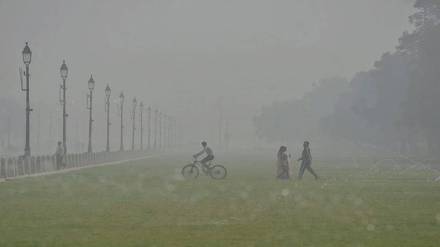We all know India is grappling with hazardous air quality, with cities like New Delhi, Gurgaon, and Ghaziabad experiencing AQI levels exceeding 400. Isn’t that a serious issue to talk about?
This hazardous pollution obviously calls for proactive measures, not just externally through masks and purifiers, but internally, too, through detox diets.
You might be thinking about how a supportive diet can play a key role in helping us combat severe air pollution. Well, that’s because detox diets are rich in specific nutrients, which can help us overcome the hazardous effects of pollution and improve overall health.
The Role of a Detox Diet Against Pollution
Pollution exposition to PM2.5 and PM10 prompts oxidative stress within the body. This, in turn, accelerates inflammation processes and respiratory issues and exacerbates existing medical conditions.Detox dieting centers on consuming foods and supplements known to help the body in the self-removal of toxins as well as repair tissue damage.
As said by Nutritionist and Fitness Coach Mankirat Kaur, Fast&Up, antioxidants, as well as detoxifying agents, are a must in our daily routine. These vitamins, minerals, and amino acids neutralise free radicals, cleansing the lungs.
Essential nutrients in a Detox Diet
Mankirat Kaur highlights some of the essential elements of a detox diet that we all must incorporate to cleanse our lungs and for the overall health of our body. These include:
- Vitamin C: A strong antioxidant, Vitamin C enhances the immune system and reduces oxidative stress. The best sources are citrus fruits, bell peppers, and strawberries.
- N-Acetylcysteine (NAC): This compound replenishes glutathione, an essential antioxidant that helps detoxify the lungs. NAC also helps to break down mucus, thus improving respiratory health.
Omega-3 Fatty Acids: Found in walnuts, flaxseeds, and fatty fish, this reduces inflammation caused by pollutants. - Fibre-rich Foods: Whole grains, fruits, and vegetables support the removal of toxins via digestion.
Lifestyle Tips For Better Air Detox
- Hydration: Increase water intake to help facilitate the removal of toxins.
- Herbs and Spices: Curcumin found in turmeric and ginger has anti-inflammatory effects that repel pollution damage.
- Physical Activity: Though outdoor activities are very challenging during the high AQI days, indoor practices such as yoga and breathing exercises can help improve lung capacity and circulation.
As pollution becomes a persistent challenge in India, we can improve our health and resilience by taking preventive measures along with detox diets containing the essential nutrients suggested by Mankirat Kaur. So start today by adding these elements to your diet to protect yourself from the adverse effects of pollution.
